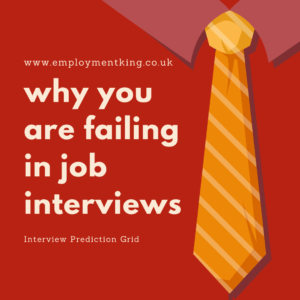The job interview is one of the most nerve-racking experiences you have to face. The reason you fear the job interview is down to the psychology of the interview process. In this series of ‘job interview psychology,‘ you will learn 5 psychological processes that are in play, that effect your job interview success, without you even knowing about it.
Job Interview Psychology 1 of 5 – rewards and fears
The psychology of the job interview starts prior to you attending the actual job interview itself.
DOES THIS SOUND LIKE YOU?
Today is the day of your job interview! You scared, nervous because you haven’t prepared. You received your job interview date 2 weeks previously; you had planned to rehearse the job interview question but just never gotten around to it and there’s a psychological reason for this
Job Interview Psychology
Are you a future optimist? Psychologists Arie Kruglanski and Torey Higgins, have found that we have two motivational systems: the “thinking” or “doing” system
We believe we think and then take action. But humans are only skilled at using one of these systems at a time. For job interview preparation we are good at planning what we need to do to be successful at the job interview:
I will research the organisation
I will prepare job interview questions and answers
I will rehearse my interview presentation
This planning creates a positive feeling – you have achieved something and because you have spent time organising your job interview preparation, you allow yourself to complete the actual action of job interview preparation tomorrow – as a reward
The future optimist – you believe this plan is great, and tomorrow you will focus on the action taking. When tomorrow comes, something, more important, takes over so you plan to take action the following – what does an extra 24hrs matter …you have a plan!
Sympathetic and parasympathetic nervous system
Another system is also in place that affects your job interview motivation. Within the autonomic nervous system sits the sympathetic and parasympathetic nervous system. These two systems work in opposite ways; “the sympathetic nervous system (SNS) meditates the body response to arousing circumstances. for example, producing the famed ‘flight pr fight’ stress response” (Robert Sapolsky – Behave; book 2017) The parasympathetic nervous system “PNS is about calm, vegetative states” (Robert Sapolsky – Behave; book 2017)
How do these two systems effect your job interview preparation?
The Sympathetic nervous system speeds up your heart rate, stops your digest process and sends the fight or flight stress signal – we don’t like to feel this way. When you think about a forthcoming job interview your perspective of the situation is ‘life or death’ if I don’t succeed in the job interview I have failed. These thoughts lead to the activation of the SNS.
Whereas, the PNS – parasympathetic nervous system, slows down the heart rate, activates the digestive system and sends out the relaxation signal. This is a state we all like, the state that we all desire be in.
It’s simple; the thought of a job interview sets of the SNS – and we want to avoid this feeling. Moving the ‘thinking about job interview preparation’ task to tomorrow releases the PNS – the state we crave. This leads to you self sabotaging, we have planned so now we can watch TV (releases SNS) and focus on job interview preparation tomorrow (removes PNS)
The Reward System
The final emotion in play is the reward system. The brain’s reward is via the release of dopamine – the happy chemical. When you receive the job interview offer from an organisation, you receive a big dollop of dopamine. If you have a strong application and receive regular job interview dates, the amount of dopamine decreases with each job interview offer. Constant success reduces dopamine releases.
The dopamine system if fired of in anticipation of, rather then achieving, a task (unless the achievement of a task doesn’t result in a reward, then we get very angry IE we think we will be successful in a job interview and are then told we have been unsuccessful)
The job interview request comes into your in-box; dopamine release. Now you have to prepare for the job interview; If you feel confident you will expect a positive outcome (where you will receive another dopamine release and a job offer) but the level of dopamine reduces as you prepare for the job interview (taking action doesn’t release as much dopamine as the anticipation of a reward) and surprisingly the dopamine release is less when you are offered the job compared to the release of dopamine you received from being invited to the job interview (unless this situation is rare for you)
If you fear the job interview, the dopamine receptors are blocked and you become stressed. Because you desire dopamine, you have learned where you can get this from; the thought of a chocolate cake, as an example. So instead of job preparation activities (that make you feel stressed because this is a fearful activity for you), you eat cake, waste precious time, but don’t care because you have your chocolaty hit of dopamine.
To be successful in the job interview you need to be proactive in job interview preparation. You need to evolve your mind to reduce job interview fear and increase job interview excitement.
In the next article, you will learn about job interview subconscious bias and how to make these work in your favor
Interview Pyschology 2 of 5 – Unconscious bias
Job Interview Advice










